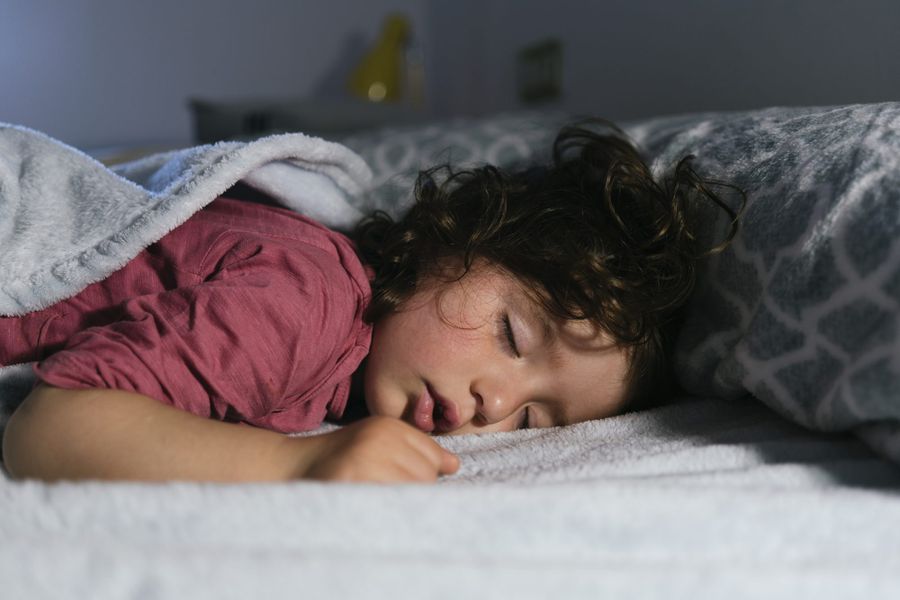
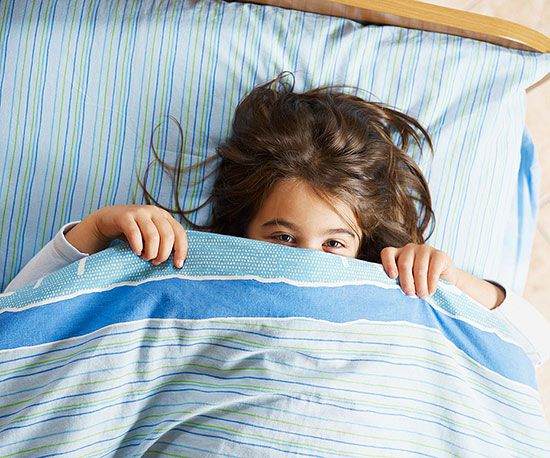
Bedwetting can be an embarrassing issue among kids, but it's actually very common. The National Institutes of Health states that nocturnal enuresis or nighttime incontinence (the medical terms for bedwetting) is involuntary urination after age 5 or 6, and that more than 5 million children experience it. According to the Mayo Clinic, 15 percent of children wet the bed at age 5 but less than 5 percent of kids do so by ages 8 to 11. Bedwetting tends to run in families and is more common among boys than girls; experts estimate the ratio as roughly 2 boys to 1 girl. Although most children eventually outgrow this phase, here are eight steps you can take to help your child keep dry through the night.
- Related: Top 10 Bed-Wetting Myths
Banish the Blame

Getting angry with your little one and punishing them for wetting the bed will only add pressure to stay dry—and will make the problem worse. “It’s difficult to stop a child from wetting the bed, and you shouldn’t worry about it unless they’re embarrassed and ask you for help,” says Scott J. Goldstein, M.D., an Instructor of Clinical Pediatrics at Northwestern University School of Medicine in Chicago. Don’t make a big deal out of it; offer some comfort instead. “Often, when parents don’t talk about bedwetting, children think they are the only ones going through it,” points out Howard J. Bennett, M.D., a pediatrician in Washington, D.C., and author of the American Academy of Pediatrics’ Waking Up Dry. “Reassure your child that they are not alone, and that bedwetting is actually very normal at their age.”
Talk to Their Pediatrician

Tell your pediatrician about bedwetting so they can track your child's progress and offer suggestions for handling the situation. If your child is older than 5, or if the bedwetting starts abruptly, discuss if there is a reason why it's occurring, suggests Mark Wolraich, M.D., Director of the Child Study Center at University of Oklahoma Health Sciences Center. Talk to your doctor about possible causes—for instance, urinary tract infections, diabetes, or even stress—and other reasons and medical solutions. Keep in mind, though, that in many cases there isn't a physical reason for bedwetting. It's just a delay in the development of nighttime bladder control.
Encourage Bathroom Trips Before Bed
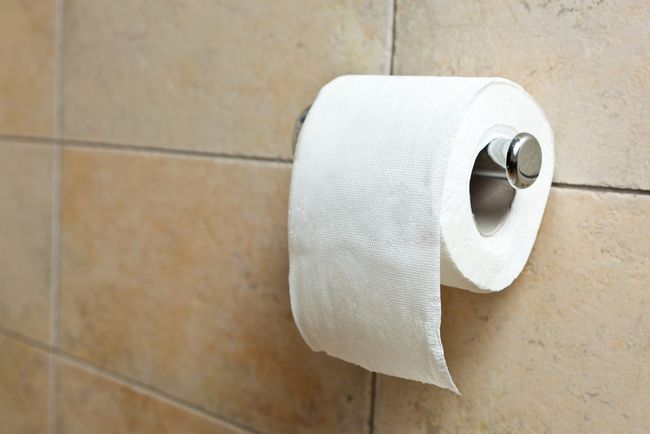
Make sure your child goes to the bathroom before their bedtime, but also try carrying them to the bathroom again right before you go to bed. "When your child empties their bladder, there's less of a chance they'll have to urinate during at night," explains Dr. Goldstein. This technique won't "cure" bedwetting, so to speak, but it can be an effective way to keep the bed dry through the night. Some pediatricians also suggest limiting your child's intake of fluids a few hours before bedtime.
Create an Incentives Chart
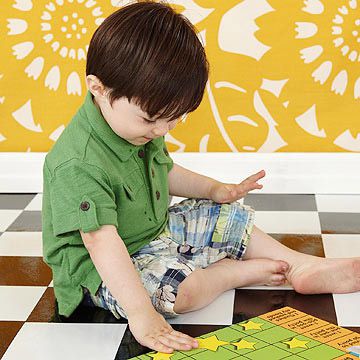
Consider adding a positive incentive, which can work on a subconscious level, to help your child end bedwetting. For instance, make a grid chart or use a calendar, and give your child a sticker (like a shiny star or a happy face) every night they stay dry. When they earns ten stickers—which might take longer for some kids, so have patience and continue to encourage them—they get a small toy or a special treat, like a lollipop, for their progress. "The power of positive suggestion does work for some children," says Dr. Bennett. "But remember, in the case of bedwetting, the opposite of reward is not punishment."
Check for Constipation
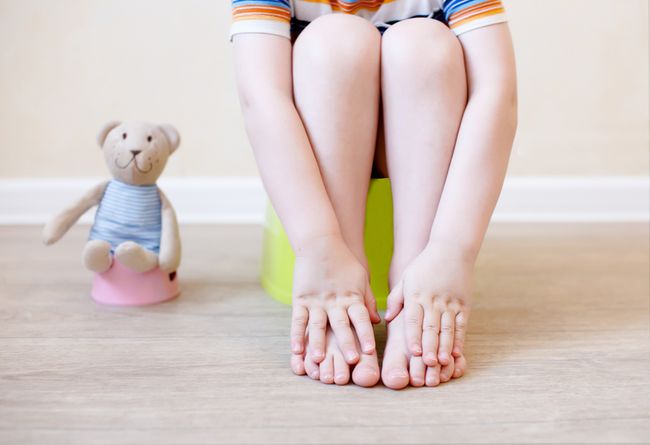
Constipation is a common cause for bladder problems. When the rectum, located just behind the bladder, is filled with large or hard poop, there is more pressure on the bladder. This causes bladder instability, which, in turn, can lead to nighttime (or even daytime) accidents, explains Dr. Bennett. He suggests that parents get "back into the poop loop." If you notice that your child isn't having a daily bowel movement or if their stool is typically hard, increase his fluid and fiber intake. Apple juice, fruits, vegetables, and whole grains are all good options to help ease constipation and get the system working better again.
Consider Specific Medications

Medication is also an option, but it has potential side effects. For instance, desmopressin, which reduces urine production, can cause headaches, facial flushing, nausea, and, in rare cases, severe water retention. Some medicine tends to control symptoms rather than cure bedwetting. "The second you stop the medication, the bedwetting might start again," says Dr. Bennett. Discuss with your pediatrician the types of prescription medication choices that are available.
Purchase a Moisture Alarm
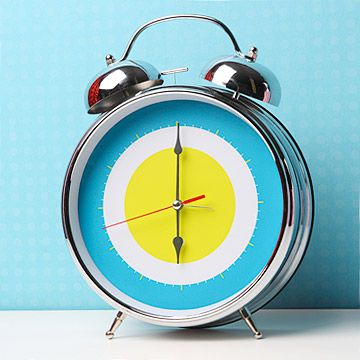
A moisture alarm wakes your child the second they wet the bed. The interruption in sleep can condition the brain to control the bladder better and help prevent accidents. This method is about 75 percent effective, and tends to work when children themselves are ready to be dry. Dr. Bennett suggests the Malem alarm and the Rodger wireless alarm system, both of which can be purchased on Amazon.com.
Invest in a Waterproof Mattress
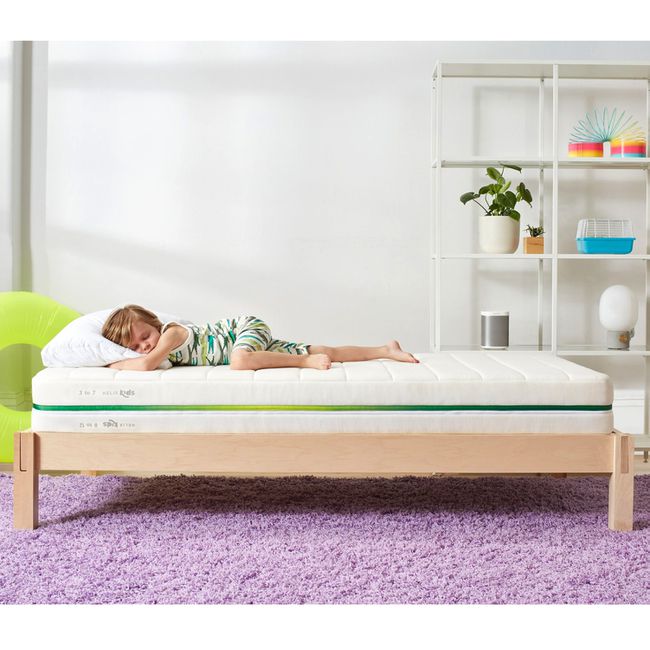
If moisture alarms and medication aren't for you, you can try simpler measures: Make sure the bed has a waterproof mattress cover or pad and pillow cases, and stock up on Pull-Ups. Lay fresh pajamas by your little one's bed for a quick change in the middle of the night. If your child sleeps through the night in a wet bed, you might want to ask them to help change the sheets in the morning—doing so can help them take responsibility for the bedwetting. Even if the child isn't wetting the bed on purpose, they're still aware of their accidents when they wake up. Helping change the sheets can make them feel like they are part of the solution rather than the problem. Then relax and be patient: This phase won't last forever. In almost all cases, children outgrow bedwetting.
